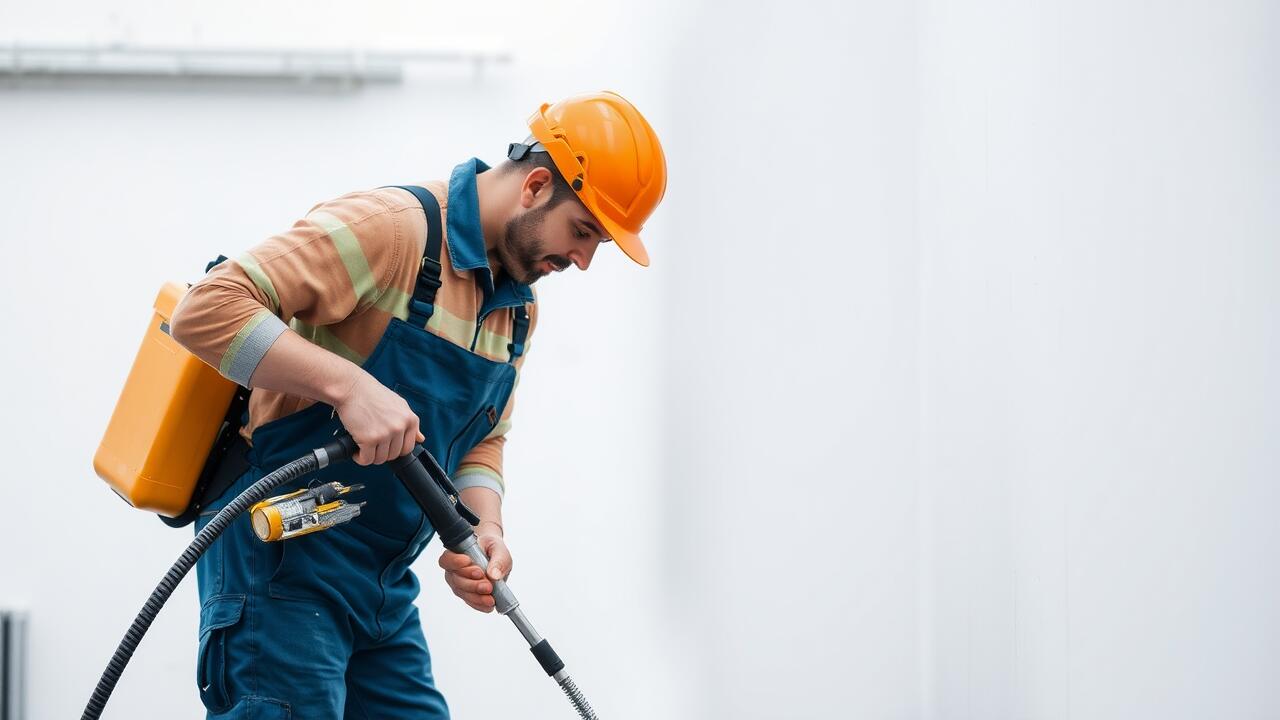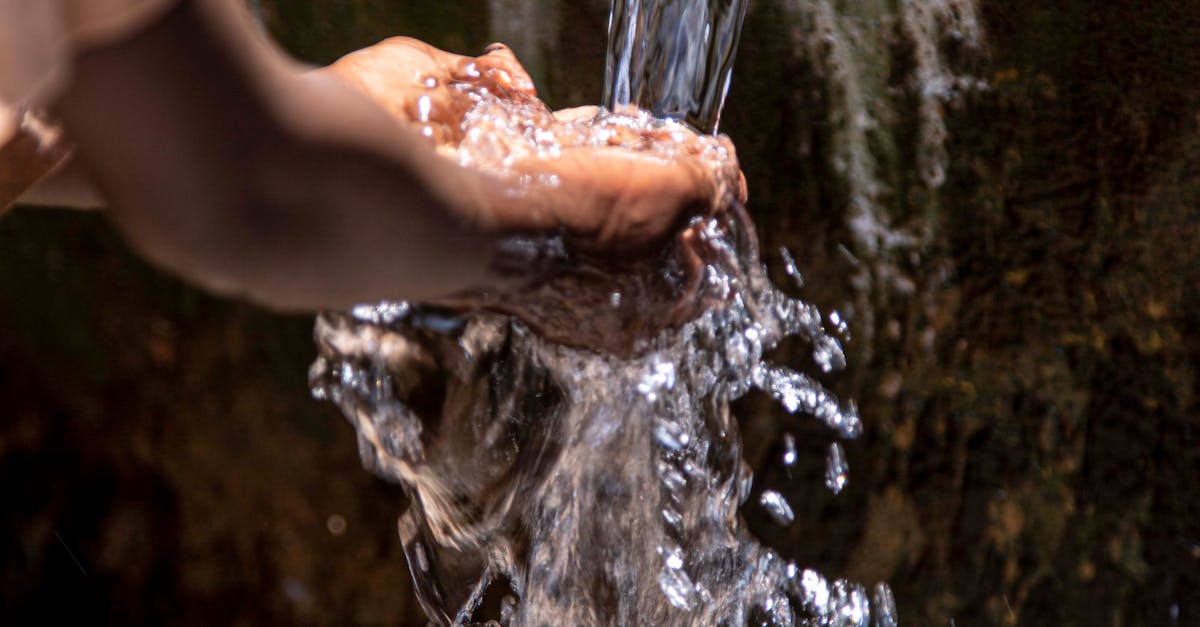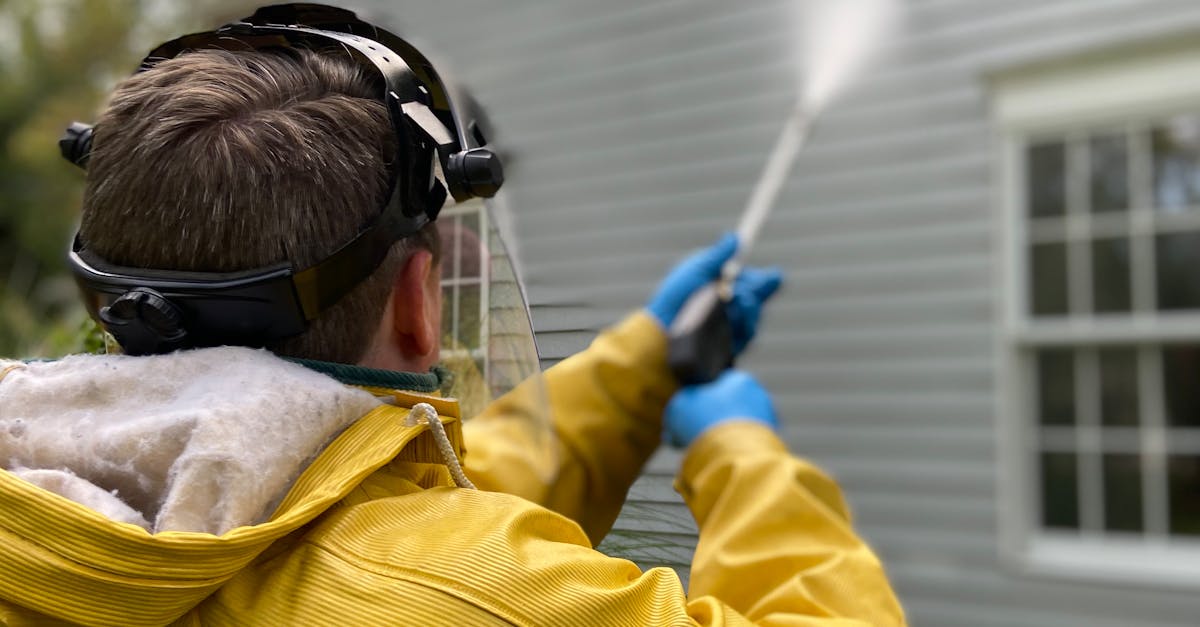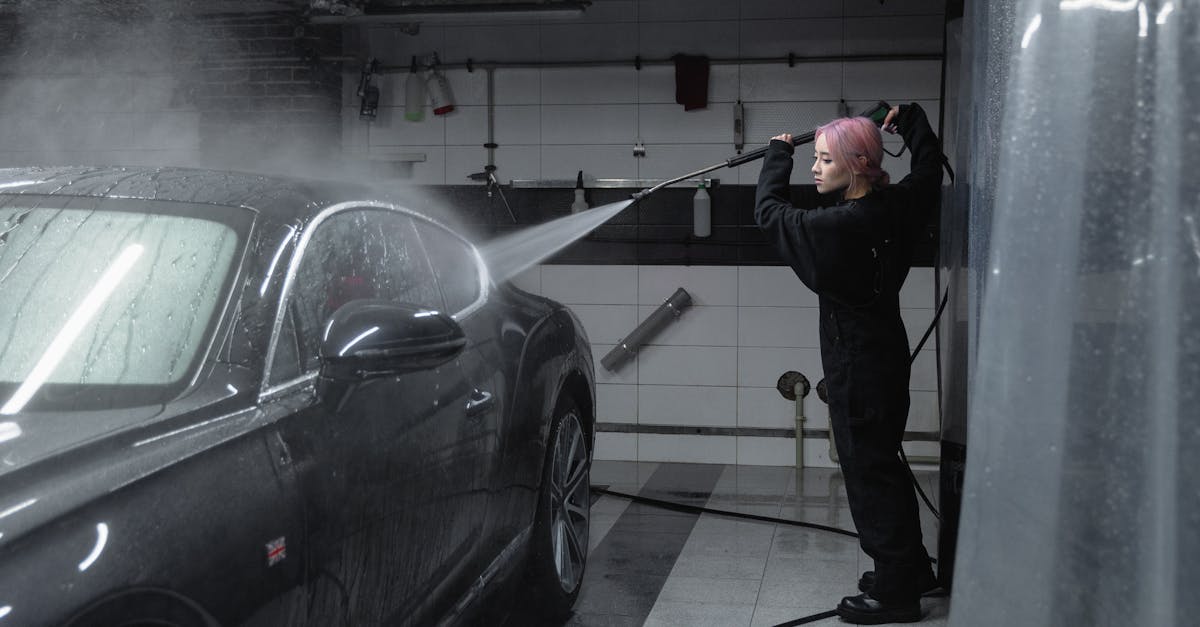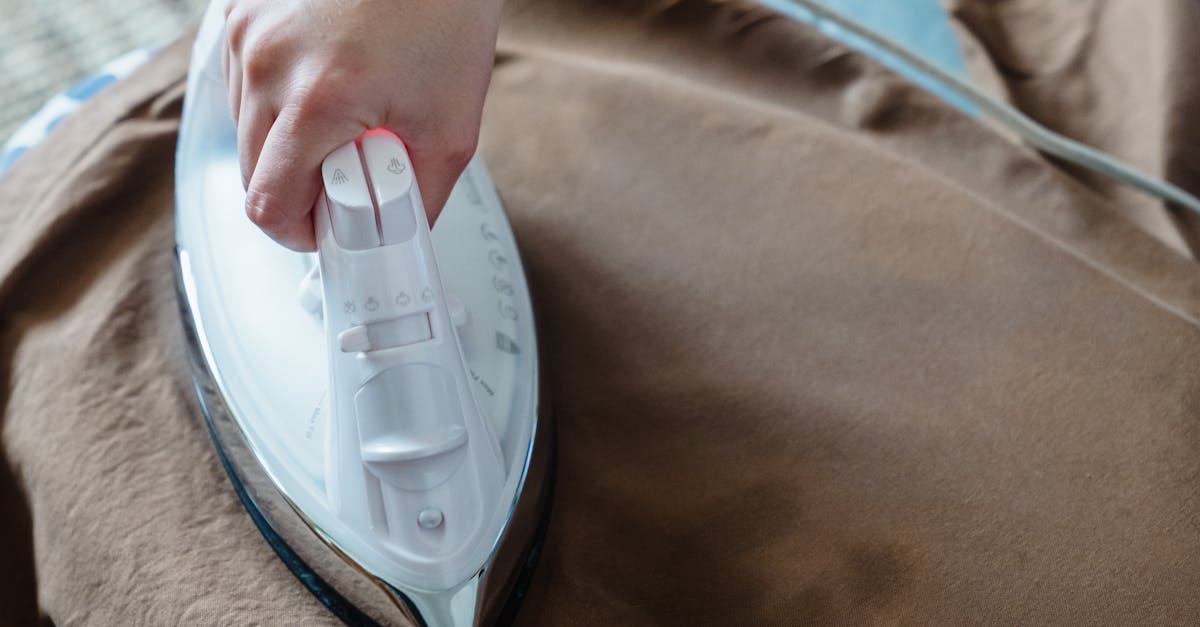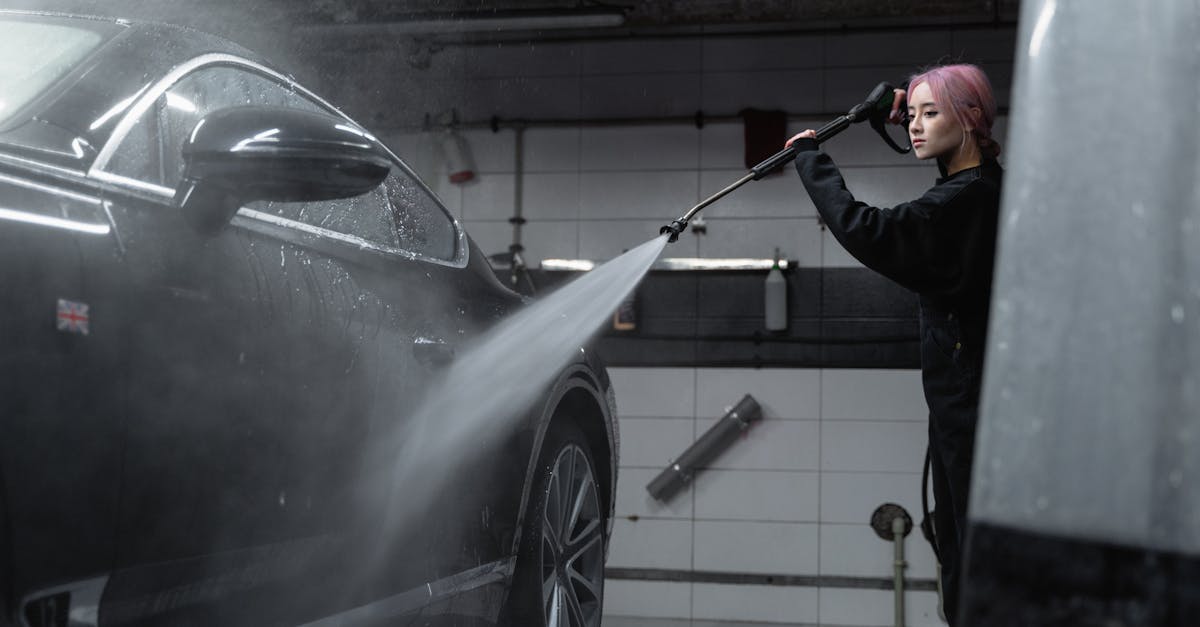
Applications of Pressure Cleaning
Pressure cleaning serves various applications across different settings, offering effective solutions for maintaining cleanliness and aesthetics. It is often employed in commercial spaces such as restaurants, office buildings, and retail outlets to remove dirt, grease, and other contaminants. This method is also beneficial for residential purposes, addressing block paving, patios, and driveways, where dirt accumulation can detract from a property’s appeal. In particular, Pressure Cleaning in Leicester, Leicestershire, has gained popularity among homeowners looking to refresh their outdoor spaces.
Moreover, pressure cleaning is an ideal choice for surfaces that require a deep clean without harsh chemicals. It effectively eliminates mould, mildew, and algae from walls, roofs, and pathways, ensuring a healthier environment. Agricultural equipment and industrial machinery also benefit from pressure cleaning, as this method removes grime that can impair function. The versatility of pressure cleaning extends to fleet maintenance, where vehicles require regular cleaning to maintain their appearance and efficiency.
Ideal Scenarios and Environments
Pressure cleaning often serves as a solution for both residential and commercial spaces, tackling a variety of surfaces. Ideal scenarios include the rejuvenation of patios, driveways, and building exteriors that have become tarnished from grime, algae, or mildew. This method is particularly beneficial in environments that experience high levels of foot traffic or exposure to outdoor elements, allowing for restoration and enhancement of the property’s visual appeal. In urban settings like Leicester, Leicestershire, where pollution can accumulate, these services can dramatically improve the appearance of structures and paved areas.
On the other hand, pressure cleaning is also valuable in industrial environments. Warehouses, factories, and outdoor storage facilities often gather tough stains and contaminants over time. The use of pressure cleaning in such contexts not only maintains cleanliness but also promotes safety by removing slippery substances. Furthermore, locations with a significant buildup of waste or organic matter can benefit greatly, ensuring a more hygienic workspace. The efficiency and effectiveness of pressure cleaning in Leicester, Leicestershire, highlight its adaptability across different scenarios and environments.
Differences in Water Pressure Levels
Water pressure levels play a crucial role in determining the effectiveness of both pressure washing and pressure cleaning. Pressure washing often utilises higher levels of water pressure, making it more suitable for tough surfaces such as concrete, asphalt, or brick. This intensity helps to remove stubborn dirt, grime, and other contaminants that may have penetrated these hard surfaces over time.
In contrast, pressure cleaning typically employs lower water pressure levels. This approach is gentler and is designed for more delicate surfaces such as painted wood, glass, or cars. The application of Pressure Cleaning in Nottingham, Nottinghamshire, showcases the importance of selecting the correct technique based on the surface to be cleaned. Understanding these differences ensures that the cleaning process is effective while also protecting the integrity of various materials.
How Pressure Affects Cleaning Efficacy
The level of pressure used in cleaning directly influences how effectively contaminants are removed from surfaces. Higher pressure settings can eliminate stubborn grime and dirt, making them ideal for tough jobs like removing paint or heavily caked mud. However, excessive pressure can damage delicate surfaces, leading to unintended consequences. Understanding the right pressure levels for various materials ensures optimal results without compromising structural integrity.
In regions such as Leicester, Leicestershire, the varied climate can affect how surfaces accumulate dirt and algae. Consequently, professionals offering Pressure Cleaning in Leicester, Leicestershire, often adapt their techniques based on local conditions. Balancing the pressure applied with the specific environment allows for efficient cleaning that protects the surface while maintaining aesthetic appeal. The efficacy of pressure cleaning thus becomes a strategic decision guided by both the surface material and the surrounding factors.
Environmental Considerations
Environmental considerations play a crucial role in the decision-making process for both pressure washing and pressure cleaning. The methods and materials used can significantly impact the surroundings. When employing pressure cleaning methods, the biodegradable detergents and eco-friendly products often used are less harmful to plants and wildlife. This is particularly relevant in areas with sensitive ecosystems, where preserving the natural environment is a priority.
Pressure Cleaning in Leicestershire has become more popular as awareness grows about the need for sustainable practices in cleaning services. Many local companies are now adopting equipment that reduces water consumption and utilises green solutions to minimise chemical runoff. This shift not only benefits the immediate environment but also fosters a sense of responsibility towards maintaining the area’s overall cleanliness and health.
Impact of Techniques on Surroundings
Pressure cleaning techniques can significantly impact the environment, particularly through the use of chemicals and water consumption. Chemical additives often used to enhance cleaning efficacy may lead to harmful runoff affecting local flora and fauna. Contaminants can seep into soil and waterways, thus altering ecosystems and harming wildlife. In urban areas like Leicester, this factor becomes even more critical as the drainage systems are interconnected, potentially spreading pollutants far beyond the initial cleaning site.
Furthermore, pressure cleaning typically employs high volumes of water, which can contribute to water wastage if not managed properly. In the context of Pressure Cleaning in Leicester, Leicestershire, where water resources may be limited, excessive use can strain local water supplies. Employing eco-friendly methods, such as the use of biodegradable detergents and optimising water pressure, can mitigate these issues. Sustainable practices not only protect the environment but also enhance the longevity of surface materials being cleaned.
FAQS
What is the primary difference between pressure washing and pressure cleaning?
The primary difference lies in the level of pressure and the techniques used. Pressure washing typically uses higher pressure and is often associated with more heavy-duty cleaning tasks, while pressure cleaning can involve lower pressure and may include the use of cleaning solutions for a more thorough clean.
Can both pressure washing and pressure cleaning be used on all surfaces?
No, not all surfaces are suitable for pressure washing or pressure cleaning. Delicate surfaces like wood or painted areas may be damaged by high-pressure washing, whereas pressure cleaning, with its adjustable pressure settings, can be more versatile and safer for various surfaces.
Are there any environmental concerns associated with pressure washing and pressure cleaning?
Yes, both methods can have environmental impacts. Pressure washing often involves the runoff of water mixed with dirt, chemicals, and contaminants, which can harm local ecosystems. Pressure cleaning may also have similar issues, depending on the cleaning agents used and the management of wastewater.
How do I determine which method is best for my cleaning project?
Consider the surface you need to clean, the level of dirt or stain, and any environmental factors. For heavy-duty cleaning of durable surfaces, pressure washing may be appropriate. For more delicate surfaces or where environmental considerations are paramount, pressure cleaning may be the better choice.
Is it necessary to hire a professional for pressure washing or pressure cleaning?
While it’s possible to perform both tasks yourself with the right equipment and knowledge, hiring a professional is often recommended. They have the expertise to choose the appropriate method, ensuring effective cleaning while minimizing the risk of damage to surfaces or the environment.
